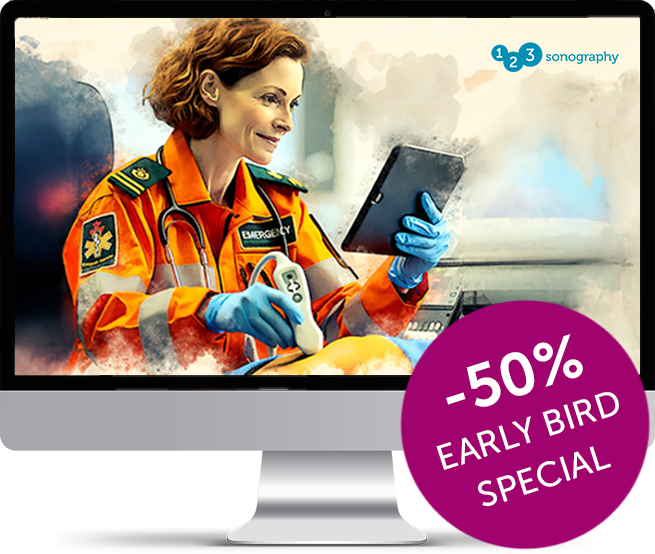Prehospital Point-of-care ultrasound
Are you working in the prehospital area? Then you will benefit from our Prehospital Point-of-Care Ultrasound course that will put you on the forefront of prehospital ultrasound! Our course is the first ever dealing with applying POCUS across diverse prehospital scenarios – it can help you become a lifesaver! In addition, you will also have the possiblity to earn CME credits. Our course will launch in Q2 of 2024, but only now you can benefit from an amazing discount of 50% plus Lifetime Access on the upcoming course! Don't wait any longer – this offer is extended until April 21st, 2024!
-
50% discount
-
Lifetime Access
-
30-Day money-back guarantee
CHAPTERS
Introduction to pPOCUS
At the outset, all participants will be greeted with a warm welcome. Furthermore, attention will be drawn to the fact that ultrasound is a skill that is easily learnable. In addition, the broad learning objectives of this course will be presented.
pPOCUS Basics
In this section, participants will learn the fundamental principles of physics, relevant artifacts, and the most commonly used buttons and settings. Tips and tricks for improving image quality, as well as the handling of the ultrasound transducer, will also be discussed.
Abdomen
In this section, the focus is on the sonographic examination of the abdomen, with particular emphasis on the identification of free fluid in the Morison, Koller, Douglas, or Proust spaces. Additionally, the most common pathologies and their etiology, as well as treatment options, will be...
Thorax
In thoracic sonography, artifacts such as A- and B-lines are discussed, with a primary focus on pneumothorax and pleural effusion, as well as hemothorax. Additionally, pathologies like pulmonary edema will be addressed, and the interpretation of specific images will be practiced using case...
Echocardiography
In the echocardiography chapter, we will begin by discussing positional relationships and anatomical considerations. Participants will familiarize themselves with standard views and aim to assess left ventricular function through eyeballing and simple measurements. The discussion will extend...
Protocols
In the Protocol Section, the objective is to synthesize the acquired knowledge of various views and recognized pathologies. Participants will gain insight into the application of specific protocols and the optimal sequence for conducting examinations.
Diving deep
In this additional chapter, a brief overview of ultrasound-guided interventions will be provided. Initially, the use of ultrasound in punctures will be discussed, followed by instances where this is warranted. Finally, ultrasound-guided local anesthesia procedures will be explored.
Get Early Bird Deal
- 50% off -
- Lifetime Access -
This offer is extended until April 21st, 2024.










